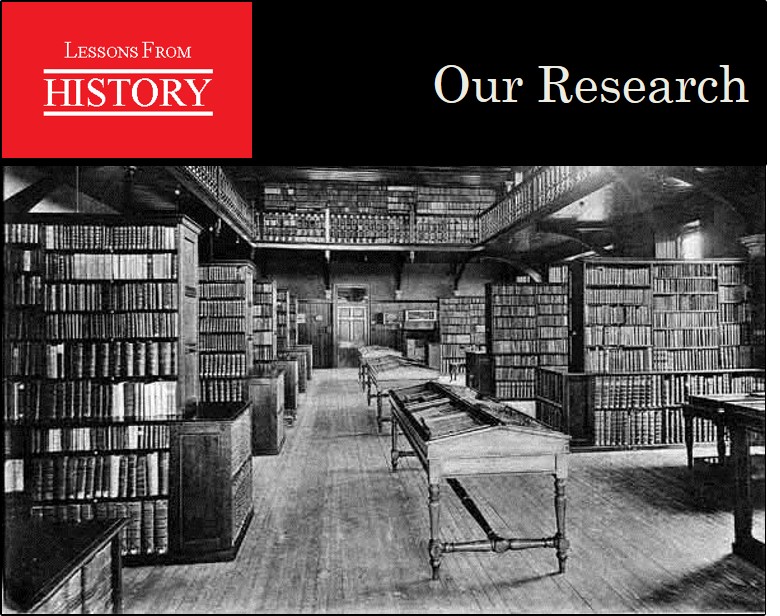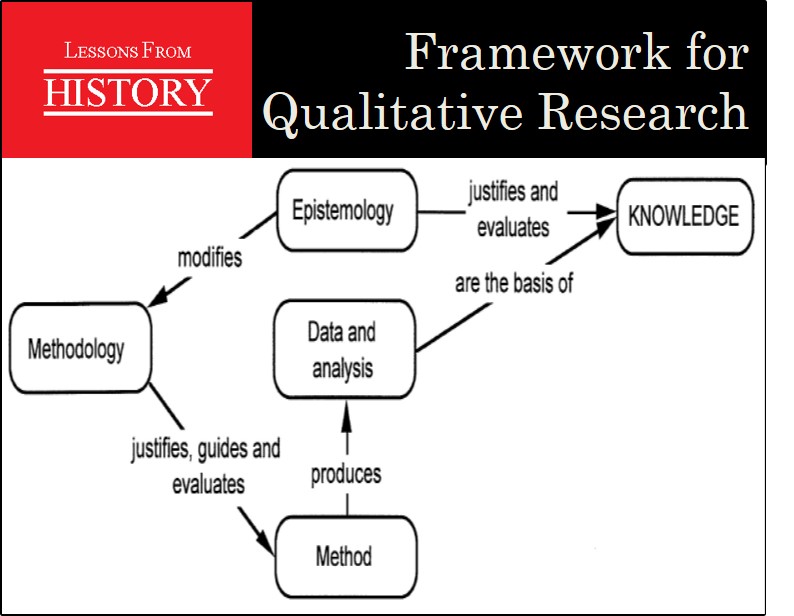LFH Overview
Historical research
 Historical research provides a set way to draw on lessons from historical case studies. Our approach is predominantly qualitative and grounded in an academic research in line with the latest academic research into project management. According to Petty et al (2012, pp.269):
Historical research provides a set way to draw on lessons from historical case studies. Our approach is predominantly qualitative and grounded in an academic research in line with the latest academic research into project management. According to Petty et al (2012, pp.269):
...qualitative research helps to understand human experience and meaning within a given context using text rather than numbers, interpreting experience and meaning to generate understanding, and recognizing the role of the researcher in the construction of knowledge.
We use a Qualitative Research Framework as proposed by Carter and Little (2007, pp. 1316) (figure below) founded on epistemology, methodology and method, and their interrelationships:
Epistemology guides methodological choices and is axiological. Methodology shapes and is shaped by research objectives, questions, and study design. Methodologies can prescribe choices of method, resonate with particular academic disciplines, and encourage or discourage the use and/or development of theory. Method is constrained by and makes visible methodological and epistemic choices.
 Historical case studies require a move towards interpretivism, examining projects broadly and diversely where project complexity, actuality and contextualisation are all important considerations (2012, pp. 570). Maylor and Soderland support this view suggesting that interpretive research allows us to uncover the human factors involved in projects:
Historical case studies require a move towards interpretivism, examining projects broadly and diversely where project complexity, actuality and contextualisation are all important considerations (2012, pp. 570). Maylor and Soderland support this view suggesting that interpretive research allows us to uncover the human factors involved in projects:
...hard skills [Positivism] are focused on the administrative tasks, in particular the use of the toolsets within project management, and associated with a hard systems worldview. Soft skills [Interprevitism] enable working through and with people and groups, and with that, handling the associated human factors. (Maylor and Söderlund, 2012, pp. 689)
As part of our approach there are two primary research methodologies, case study research and historiography advocated for researching historical management and project management. Both have been used extensively for LFH publications. Knowledge of the past can inform our future actions, so it is necessary that the interpretation of history is based on sound historiographical techniques and judgements. A third supportive methodology interdisciplinarity has been used with more recent publications to guide the research.
The research can be used to discover patterns in different historical case studies.
According to Petty et al (2012, pp.269):
...qualitative research helps to understand human experience and meaning within a given context using text rather than numbers, interpreting experience and meaning to generate understanding, and recognizing the role of the researcher in the construction of knowledge.

